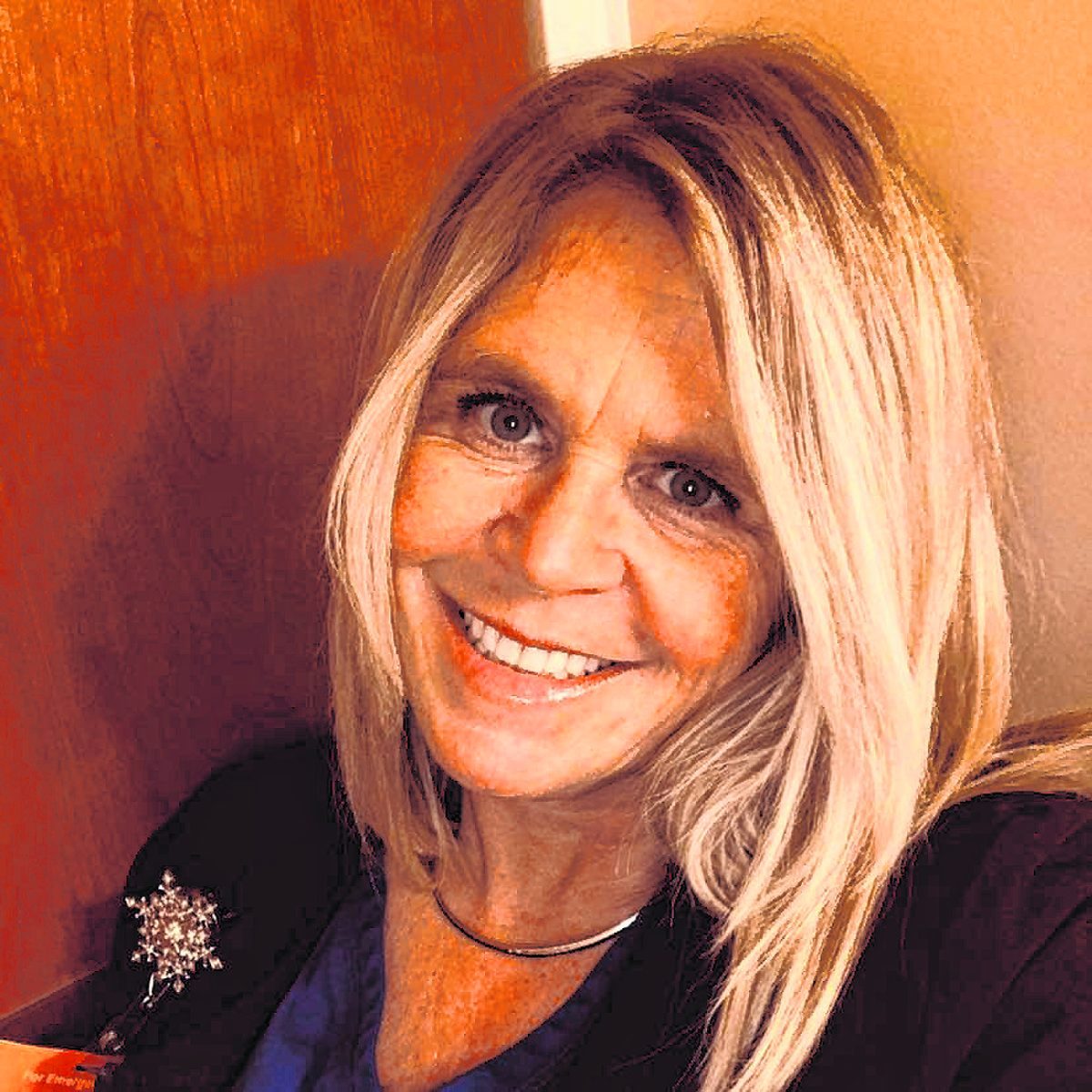
I will never forget the day I met you.
Introduced at shift change, I said “My name is Stephanie, and I will be your nurse today,” and the first thing you said to me was, “Am I doing all right?” I smiled and said very loudly, “Yes, you are doing all right.” You couldn’t really hear me, and the masks make it impossible to read lips, so I just gave you a thumbs up.
Over the next few days, you would repeatedly ask me, “Am I doing good? Am I going to be all right? I’m doing good, ain’t I?” over and over and I would repeatedly give you the thumbs up and you would say, “You’re so sweet, so kind. Everyone here is so kind,” and I would stand at the door and smile under my mask and give you a wink.
And then suddenly, just like that, you weren’t doing as well. You were doing everything you were supposed to, everything we asked, but your lungs needed rest. There was only one option. As I explained it to you, I again stood at your door as you said, “Please don’t give up on me. Don’t let them give up on me because of my age.” I promised you I wouldn’t. I walked away with tears in my eyes.
I went with you up to the intensive care unit and sat with you so you wouldn’t go through this alone. You asked me, “Is this really necessary, you think?” I leaned into your ear and said, “I think so.” You looked at me with understanding but with the fear of not knowing. I held back tears to be strong for you.
As the other nurses dialed up your family for a quick FaceTime, I held it together so neither you nor them could see how this hurt me, too. I listened to you all say your goodbyes, and I promised your family we would do all we could, and they said, “We will hold you to that.”
You asked the doctor if this would make you all better, and the doc replied, “I’m going to try like hell to make you better, but there are no promises.” And there really isn’t for any of us.
As we wheeled you to the intubation room, you said, “This is scary,” and I was thinking the same thing. I stood outside the intubation room at the closed glass door, and you watched me as I gave you the thumbs up and pulled my mask down to mouth “You will be all right” as I formed a heart with my hands.
You gave me a small nod of understanding, and as they gave you the medicine to help you rest, I wasn’t strong anymore. I cried. And I cried hard. My coworkers checked on me because they too had been through this very same scenario with their own patients. They understood.
Through the next few days, I checked in on you, and at one time, you even gave me a thumbs up. Hooray! I was so happy. Maybe, just maybe, this was going to work.
But then the day came when the code was announced in your room. My mind screamed “No! No! No! No!” as I ran to your room. I stood at the glass door as the very talented team was doing all they could, but it simply was not to be. My friend recited the Lord’s Prayer at your bedside as you left this old body behind you to go to your forever home in heaven.
I was devastated, and I could not fathom how your family must feel. I cried again. I went back to my daily tasks telling myself I would just have to learn to not feel anything, to not get close, but I know that is not an option, especially when we are all the patients have at the bedside and they depend on us, not only medically but emotionally.
And we try to be all that we can for all of you. It comes at a very high cost to our own well-being and mental health, but that is a price we pay day in and day out because that is who we are.
The reason for this post is to let everyone know that what we are dealing with is emotionally draining — hearing loved ones sing to their family that is sedated and the song “Hallelujah” eerily rings down the hallway or people singing hymnals in the stairwell as they work and it always brings pause to the very busy nurses’ station.
Please know that we do not want your pity. We do not recognize as heroes and do not wish to be. We simply want an end to this the same as anyone else. Politics play no role in our job, and we are not getting compensated with extra money to do this.
We work side by side, left and right, to save the lives of those in our community that is someone’s loved one. We are emotionally and physically exhausted, and we are unheard when we simply ask that people mask up. Yet we don’t give up, and we ask that you just be compliant for a little longer.
It is said that right now, only 10% of people know someone that is very sick or has died from COVID, but very soon, that number will most likely move to more than 50%, and yet people still do not care.
I hang my head, sigh and plan emotionally for the next wave, and once again, I cry and I move on to the next person: “Hi. My name is Stephanie. I’m going to be your nurse today.”
Stephanie Grunden is a BSN, RN who works on the third floor at Schneck Medical Center in Seymour. Send comments to [email protected].
